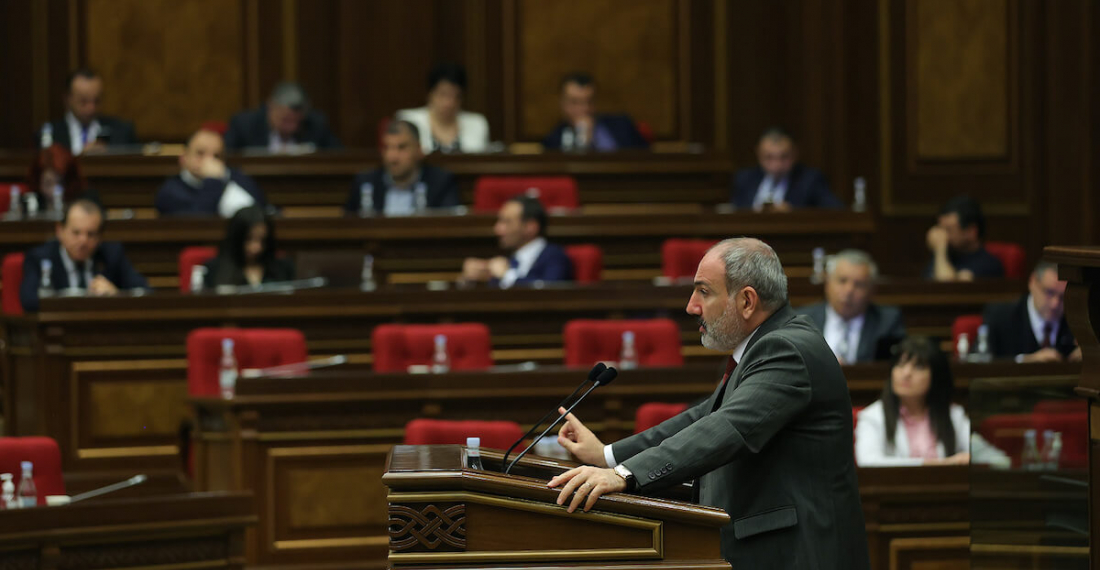The Armenian parliament today (10 May) for the second time intentionally failed to elect a new prime minister following the resignation of Nikol Pashinyan in April, triggering the next stage in the process of parliament’s dissolution and snap parliamentary elections. The constitutional procedure for early elections follows that the prime minister resigns, parliament fails twice to select a new prime minister, parliament dissolves, and snap parliamentary elections are called. Today’s vote fulfils the second part of the second step, with Pashinyan first being nominated and then voted down on 3 May. Pashinyan remains as acting prime minister.
Speaking at the Armenian National Assembly in advance of the vote, Pashinyan defended his legacy as prime minister, rebutting claims of his government failing on its revolutionary agenda that brought it to power in 2018. He stressed that the main beneficiary of his government’s reforms has been the Armenian citizen, and contrary to media headlines, “deep reforms have really taken place in the Republic of Armenia, starting from the economy, continuing justice, ending with the environment”. The acting prime minister spoke at length on changes made under his government in these areas as well as in agriculture, education, healthcare and others.
Pashinyan acknowledged the designation by the US president of the killing of Armenians in Anatolia at the end of the Ottoman empire as genocide. He denied accusations of his government being pro-Turkish before arguing that the designation of the killing as genocide is not pro-Turkish or anti-Turkish but an acknowledgement of historical fact. He stated the need to manage enmity with Turkey and that “hostility must not be allowed to manifest itself in constant manifestations of uncontrollability”.
He went on to highlight that despite the disaster of last year’s war with Azerbaijan, not a single shot had been fired in Armenia, there was no civil war, and the government had managed to maintain macroeconomic stability – a point he credited to the velvet revolution. As for the “most important change”, the acting prime minister held up the fact that Armenians no longer question Armenia’s integrity as a democracy – “Today you will not find a citizen in the Republic of Armenia who asks, what do I decide? Because the citizen of the Republic of Armenia knows that he decides.”
Following today's vote, President Armen Sargsyan signed a decree ordering extraordinary elections for the National Assembly in Armenia to take place on 20 June 2021.



